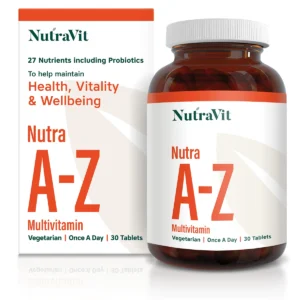Do you care about your mood, sleep, exercise, mental and heart health?
If that’s a yes, then you may be interested in knowing about the benefits of magnesium and zinc together.
Magnesium and zinc are both essential minerals mainly obtained from your diet.
Both have slightly different structures and play different roles in your health.
Find everything you need to know about the two and the benefits of magnesium and zinc together.
What is magnesium?

Magnesium is a mineral that plays a vital role in your body’s functions. When it comes to your diet, it’s a mineral you need to make your best friend.
To be more specific, it plays a major role in supporting over 300 enzymes in chemical reactions, such as building proteins and helping with bone development, blood pressure and blood sugar regulation, and nerve function.
Magnesium is readily available in a variety of everyday foods, including:
- Tofu
- Bananas
- Nuts
- Legumes
- Dark chocolate
- Avocados
- Tofu
- Fatty fish: Mackerel, salmon and halibut.
- Seeds: Pumpkin, flax and chia seeds,
- Whole grains: Barley, oats and wheat.
- Bananas
- Leafy greens: Kale and spinach.
- Ground beef
- Chicken
- Peanut butter
What is the recommended amount of magnesium?
On average, women need 310-320 mg of magnesium daily, whereas males need 400-420mg. Your body stores around 50-60% of magnesium in your skeletal system; the rest is supplied to your soft tissues, muscles, and body fluids.
What are the benefits of magnesium?
Although we just briefly touched on it earlier, there are a few health benefits of magnesium worth noting, such as:
It can help bone health
Your bones contain around 60% of the total magnesium stored by your body. If your body does not make enough magnesium, the cartilage begins to break down, which puts you at a higher risk of fracture or osteoporosis. In other words, magnesium is essential to help you maintain your bone density and strength.
Supports digestive health
Many scientific researchers believe magnesium may have a powerful influence on the gut-brain axis, an important pathway linking the digestive tract to the central nervous system. Magnesium is believed to reduce intestinal inflammation, relax the intestines, and aid bowel movements.
It can help with your cardiovascular health
Magnesium helps regulate your blood pressure and heartbeat. It’s used in homeostasis to transport essential electrolytes in your body, like potassium and calcium, into your cells. These electrolytes are essential in your nerve signals and your heart’s contractions. Moreover, having sufficient magnesium levels can lower your risk of cardiovascular disease, hypertension, heart attack and arrhythmia.
Could help improve sleep
Magnesium also plays a crucial role in sleep. People with low magnesium levels often have problems falling asleep or sleeping for a long time. Research conducted on 4000 adults shows that magnesium can help improve sleep quality and duration.
For more information, check out our article- The top 6 benefits of magnesium.
What is Zinc?
 Zinc is a trace mineral that your body needs to help perform 100 enzymes and undergo essential chemical reactions. It helps, in particular, create DNA, grow cells, build protein, repair damaged tissues, and support your immune system.
Zinc is a trace mineral that your body needs to help perform 100 enzymes and undergo essential chemical reactions. It helps, in particular, create DNA, grow cells, build protein, repair damaged tissues, and support your immune system.
You can find zinc in the following foods:
- Nuts and seeds: Almonds, cashews, pumpkin seeds, hemp seeds
- Beans: Chickpeas, lentils, peas, beans
- Dairy: Cheese and milk
- Seafood: Lobster, muscles, shrimp and crab
- Fortified foods: Breakfast cereals
What is the recommended amount of zinc?
The Recommended Dietary Allowance (RDA) for adult males is 11 mg, and for women, 8 mg. Pregnant women’s RDA varies between 11 and 12mg.
What are the health benefits of zinc?
Zinc holds a lot of benefits for your body; some of the main ones are:
It may help heart health
Heart disease contributes to around 33% of deaths worldwide and the chances of it happening can be significantly reduced due to lifestyle choices. Zinc, in particular, may help prevent heart disease by lowering triglyceride, cholesterol levels and systolic blood pressure. There’s also research which shows low levels of zinc could be linked to a higher risk of coronary heart disease.
It can help with skin health
Zinc is high in anti-inflammatory properties and may help decrease symptoms of acne, eczema, rosacea, psoriasis, and wound healing. It also plays a role in tissue repair and skin healing.
Helps immune function
Zinc plays a role in the development and function of your immune cells. It encourages T-cell, B and lymphocyte production, which are important for fighting infection and viruses. Moreover, low zinc levels are linked to slower immune cell formation and activation.
Can slow down macular degeneration
Macular degeneration is one of the main contributors to vision loss. Research shows that zinc can slow down the progression. It’s also thought that zinc can encourage nutrient flow to the retina; however, more research is needed.
For more information, check out our article The top 10 health benefits of zinc.
Can magnesium and zinc be taken together?
Magnesium and zinc at the same time when taken in the right dose compliment each other. Magnesium can help regulate your zinc levels and both minerals are good to take in supplement form, especially if you don’t get enough from your diet.
When magnesium and zinc supplements are combined with vitamin B6, you may have improved sleep quality and faster growth and development of muscles. The benefits of magnesium and zinc for women are the same.
If you have certain medical conditions like type 2 diabetes and coronary heart disease, there’s a higher risk of being deficient in both minerals. A small study was conducted looking at people with type 2 diabetes and coronary heart disease who took magnesium and zinc supplements.
They found that these supplements had a positive effect on their blood sugar, insulin, and cholesterol and lowered inflammation, decreasing the risk of heart disease.
Try Nutramag
If you’re wanting to have magnesium with zinc benefits, then try Nutra Mag. A vegetarian supplement that combines magnesium citrate with Vitamin B3, B6, B12, D3, Zinc and Boron together.
This high-strength magnesium supplement contains magnesium citrate, a fast-absorbing form of magnesium that helps support sleep and alleviate muscle and leg cramps. It encourages normal physiological function of the body and is a complementary supplement for athletes.
When vitamin B6, B3, and B12 are combined, they help reduce tiredness and fatigue, encouraging normal protein synthesis, energy-producing metabolism, and electrolyte balance.
Magnesium and zinc together – the bottom line
Overall, magnesium and zinc together can be beneficial if taken in the right dose and for the right reason. However, before taking oral supplements of both minerals individually or combined, we suggest you speak to a medical professional first before taking them, especially if you have any preexisting conditions, are taking certain medications or are pregnant.
On the other hand, if you’re looking for a general supplement with a lower dosage that can provide these benefits alongside a multitude of others, then why don’t you dry our multivitamin Nutra A-Z?
Available in lower strength, these comprehensive supplements include many more essential minerals and vitamins that address key areas of your health.
Moreover if you have healthy magnesium levels obtained from your diet, why don’t you try Nutra Zinc Complex or Nutra Zinc Picolinate? Great for immunity and help with bone strength, these supplements are GMO-free and can help maximise the benefits of the two together.
 FREE UK DELIVERY ON ORDERS OVER £20.
FREE UK DELIVERY ON ORDERS OVER £20. WORLDWIDE SHIPPING AVAILABLE
WORLDWIDE SHIPPING AVAILABLE




